Vowel Recognition Alphabet Worksheets for Ages 4-6
18 filtered results
-
From - To
Discover our engaging Vowel Recognition Alphabet Worksheets designed for children aged 4-6! These worksheets are perfect for early learners, helping them identify and understand vowels in fun and interactive ways. Filled with colorful visuals and entertaining activities, they promote essential reading and phonetic skills. Kids will enjoy tracing, coloring, and recognizing vowel letters within words, enhancing their literacy foundations. Our resources support various learning styles, making it easier for educators and parents to foster a love for reading. Empower your child's learning journey and boost their confidence with our delightful vowel recognition worksheets today!
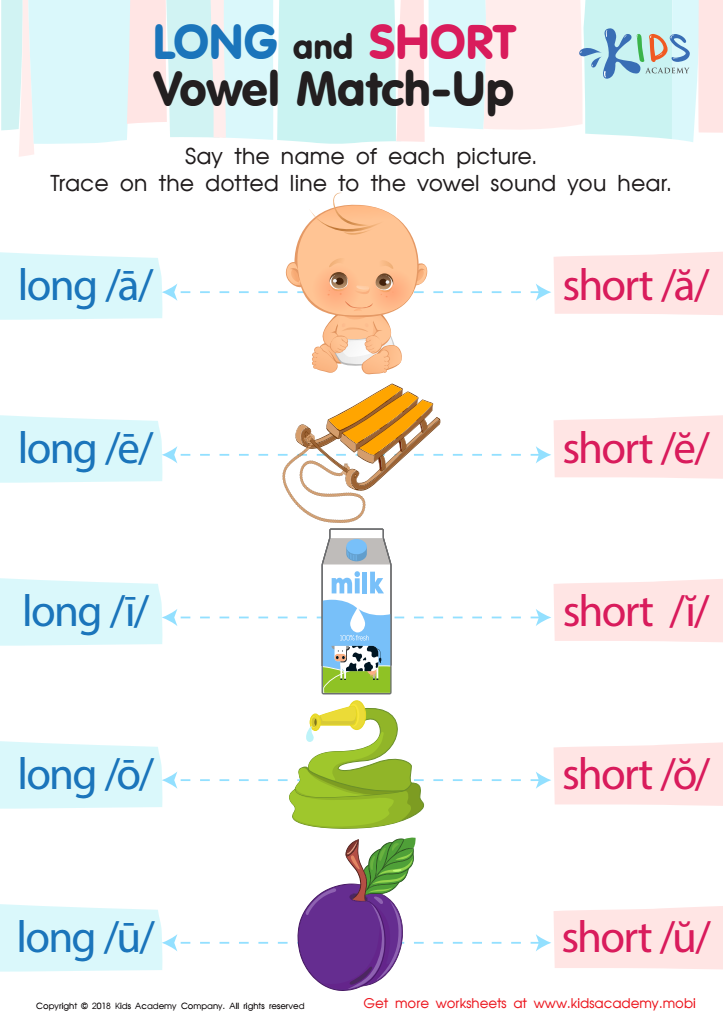

Long and Short Vowel Match up Reading Worksheet


Let's Check Long Vowels: Assessment Worksheet
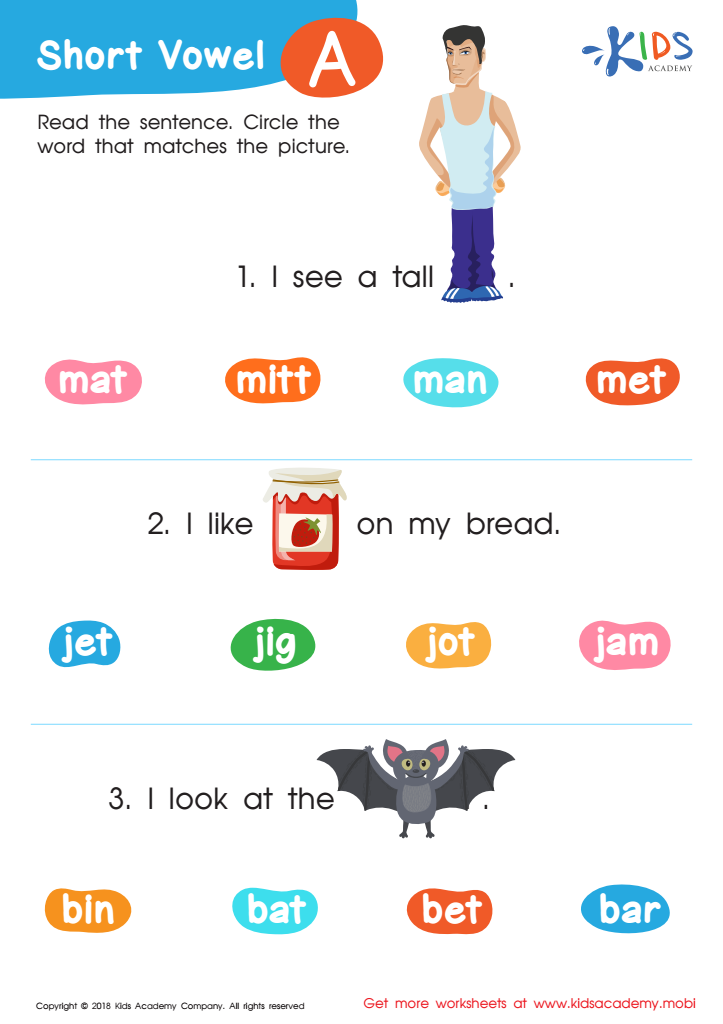

Short Vowel /a/ Worksheet
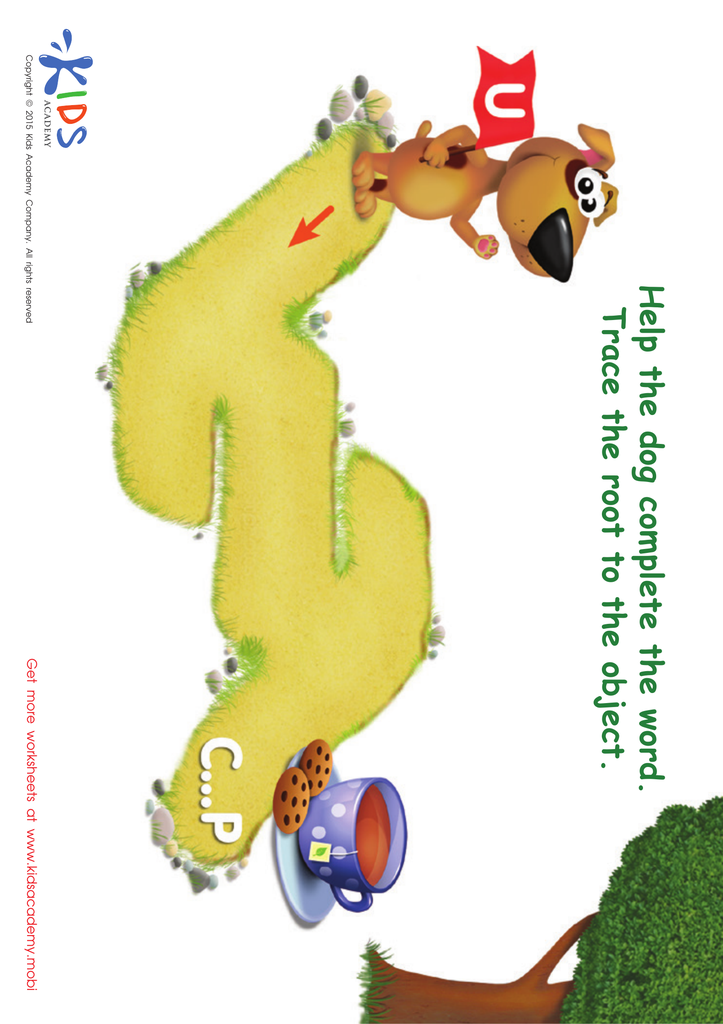

Short Vowel Sound U Worksheet Worksheet
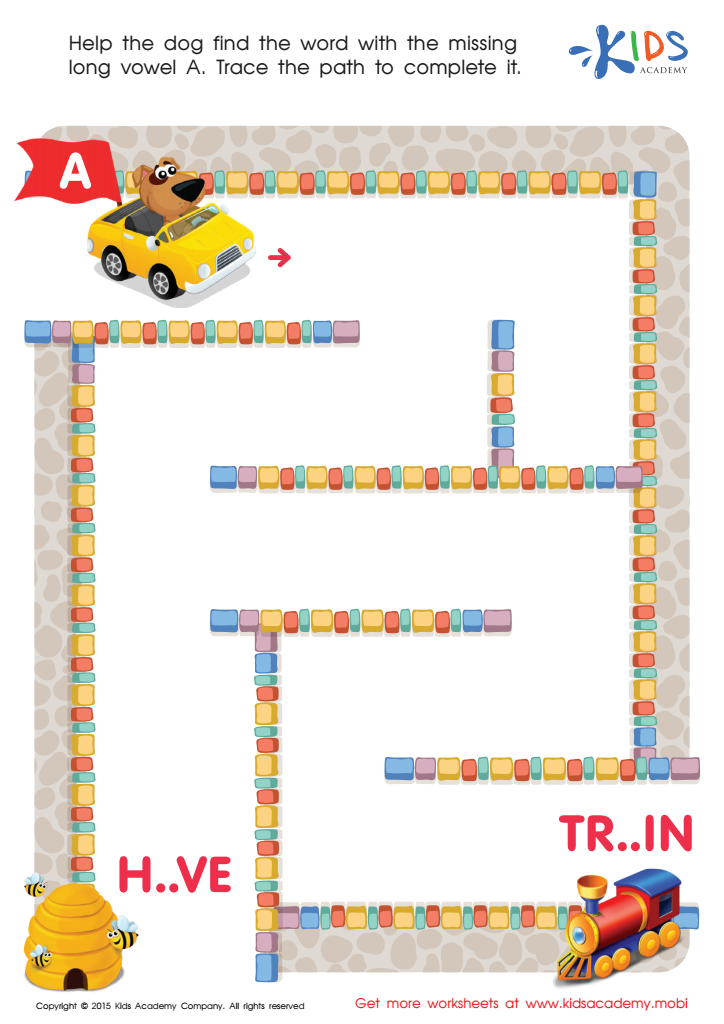

Long Vowel Sound A Worksheet


Short Vowels /e/, /i/, and /u/ Worksheet


Long Vowel Maze /o/ and /i/ Worksheet
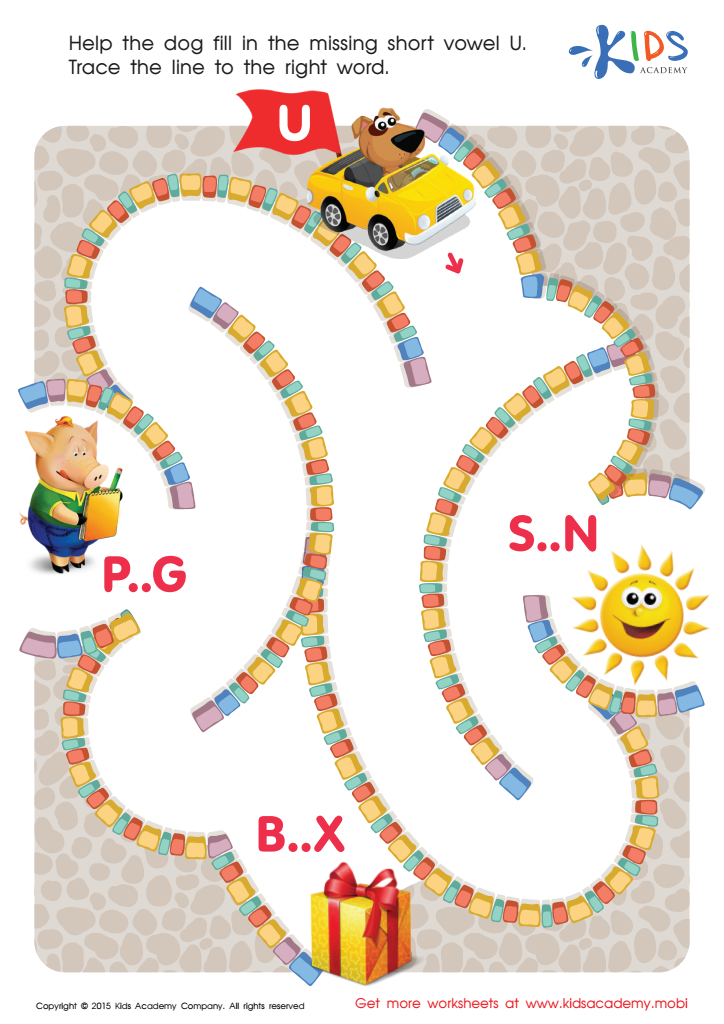

Short Vowel Sound U Worksheet


Short Vowel Eggs Worksheet
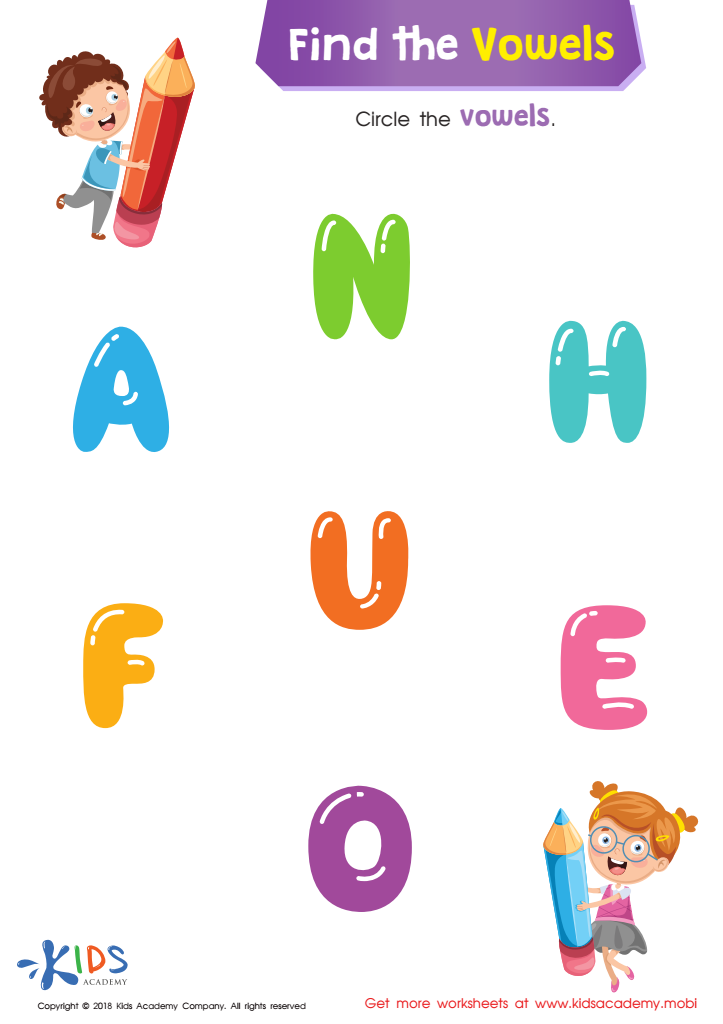

Find the Vowels Reading Worksheet
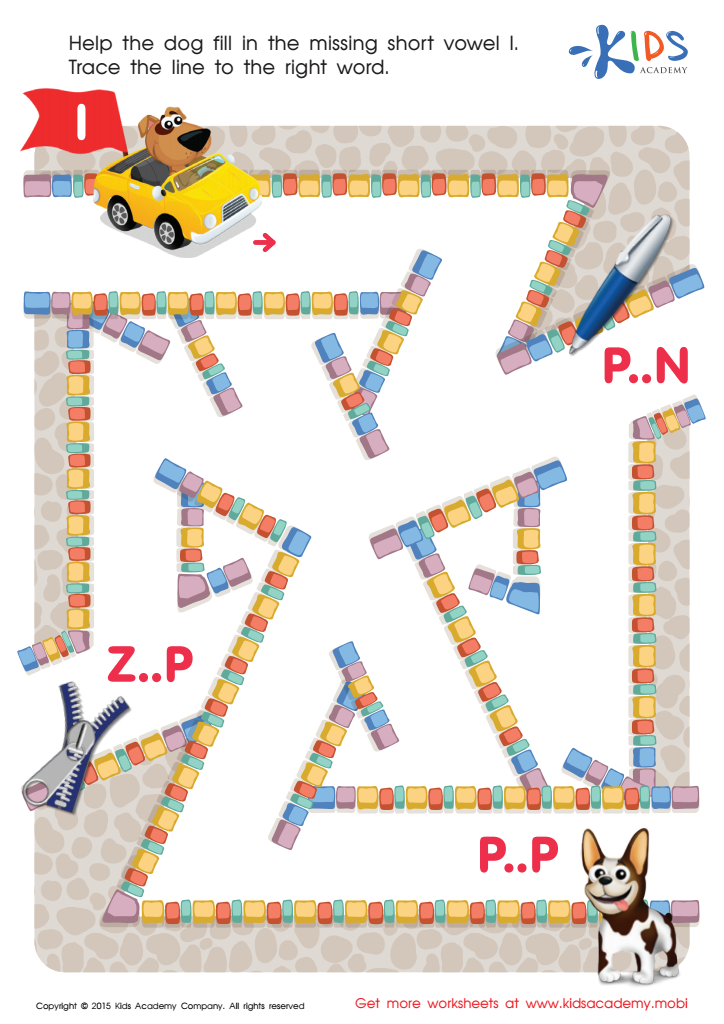

Short Vowel Sound I Worksheet
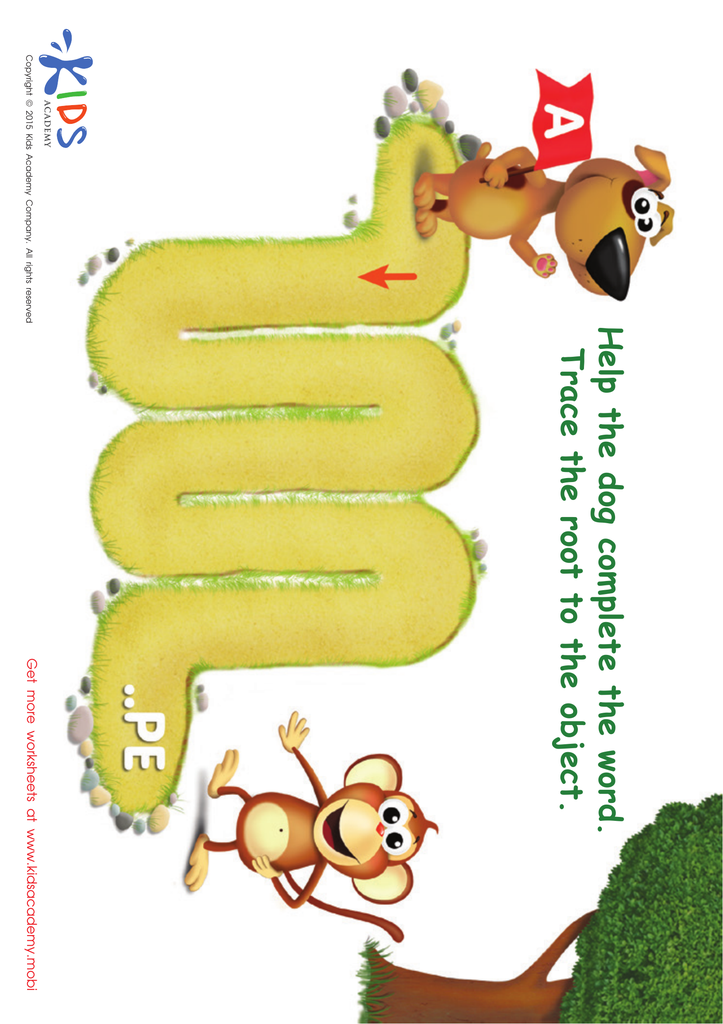

Long Vowel Sound A Worksheet Worksheet
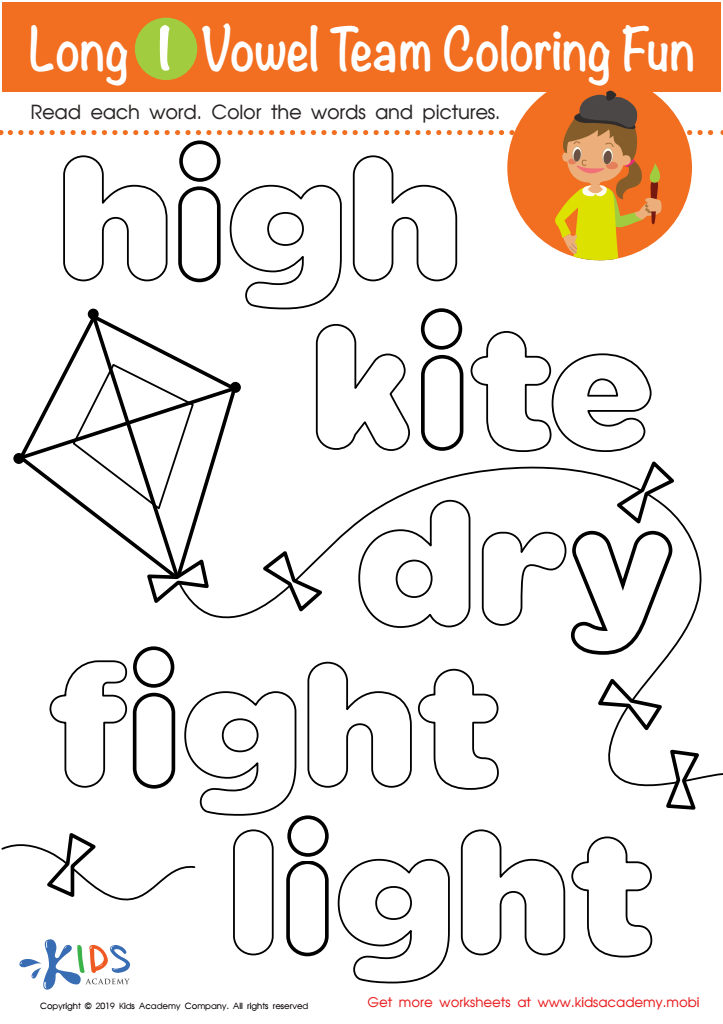

Long I Vowel Team Coloring Worksheet
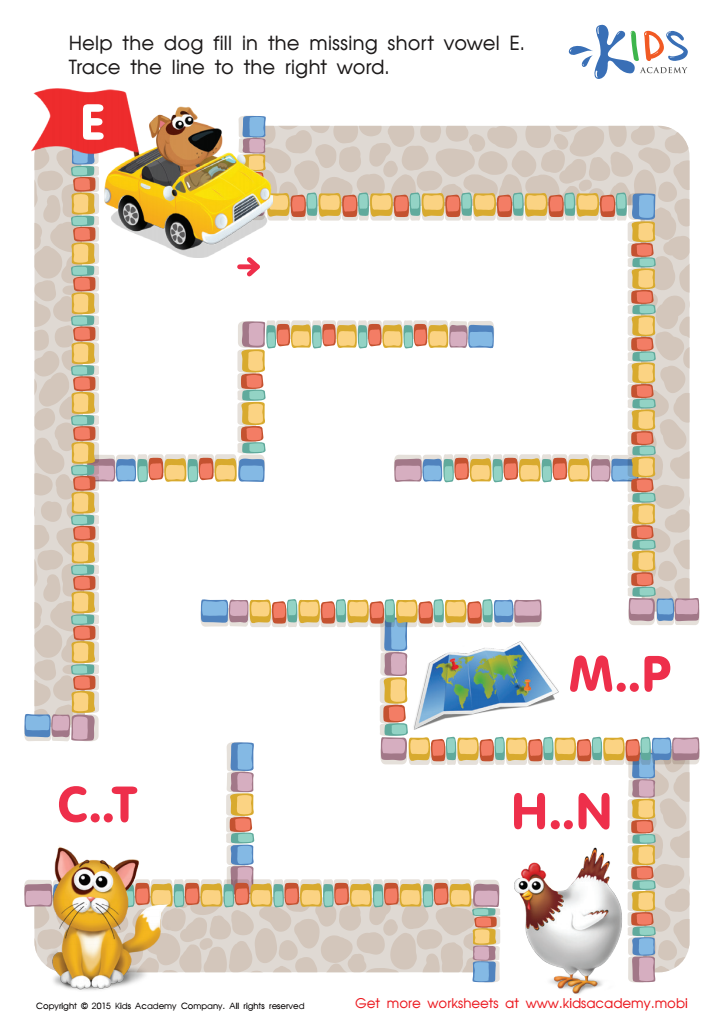

Short Vowel Sound E Worksheet
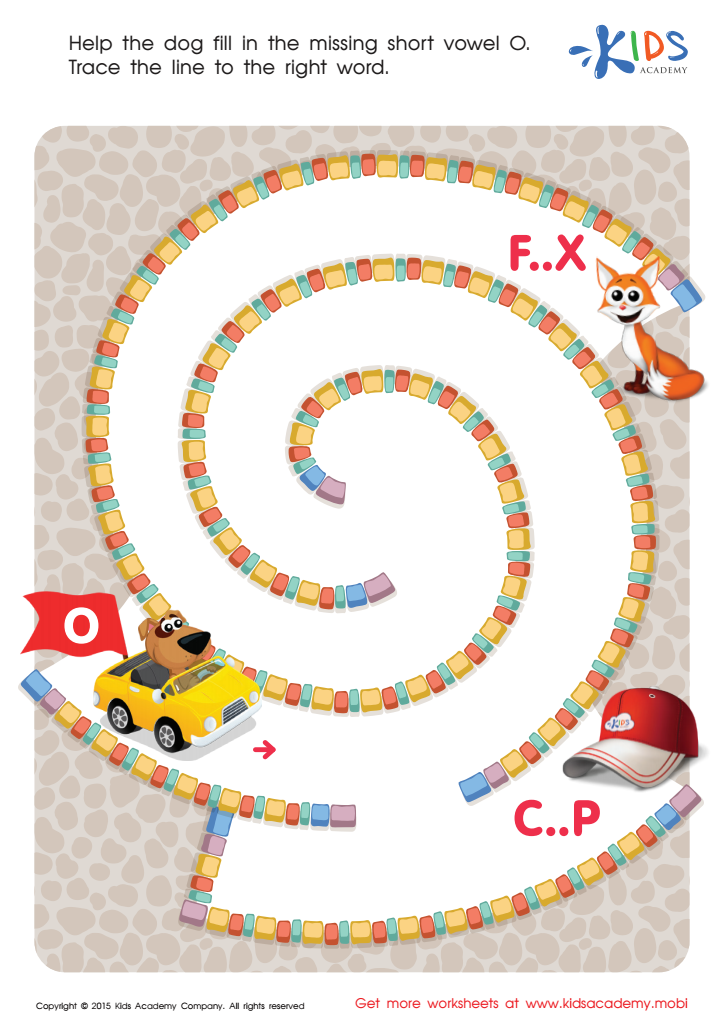

Short Vowel Sound O Worksheet


Long and Short Vowel Sentences: Assessment Worksheet
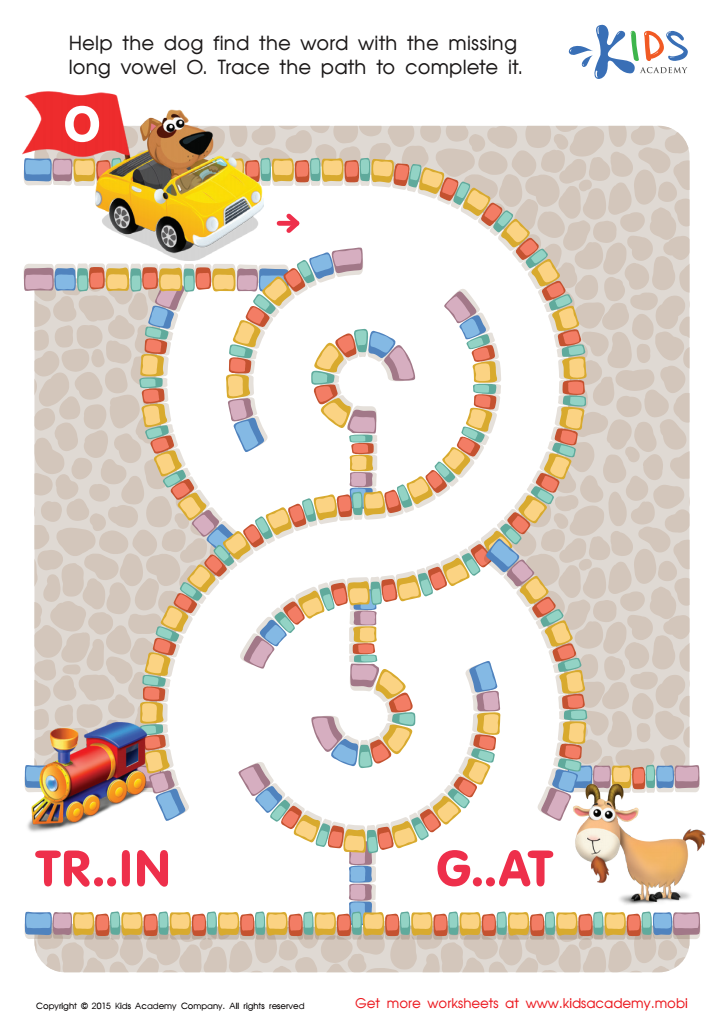

Long Vowel Sound O Worksheet
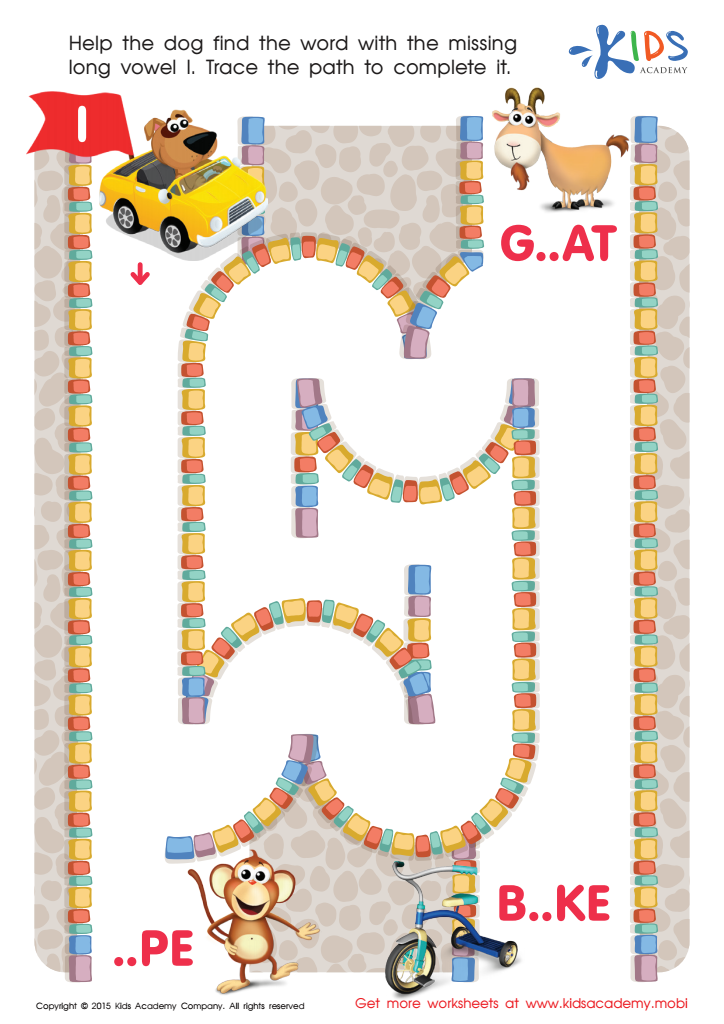

Long Vowel Sound I Worksheet
Vowel recognition is crucial for young learners aged 4-6 as it lays the foundation for literacy development. Understanding vowels—A, E, I, O, U—is essential for students as they begin to decode words, an early step towards reading. Recognizing vowels enables children to sound out words independently, fostering confidence in their reading abilities.
Incorporating vowel recognition into early education encourages phonemic awareness, which is vital for spelling and writing. When children confidently identify vowels, they can better understand word structures, enhancing their overall language skills. Teachers and parents can engage children through interactive activities, games, and songs that make learning vowels fun and memorable.
Furthermore, identifying vowels supports children’s listening skills and oral language development. It aids them in distinguishing between individual sounds in words, which increases their auditory discrimination skills.
Parents and teachers who prioritize vowel recognition ensure their children acquire critical literacy skills early on. This facilitates smoother transitions into more complex reading materials as they grow, fostering a lifelong love for reading. Ultimately, recognizing the role of vowel recognition is key to nurturing capable, confident readers, a goal that benefits not just individual children but society as a whole.
 Assign to My Students
Assign to My Students





.jpg)











